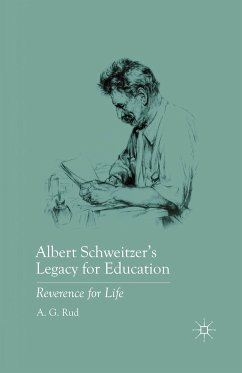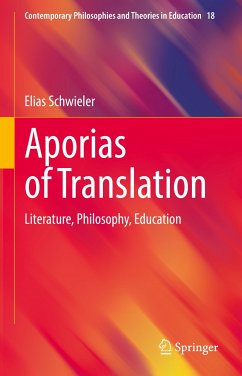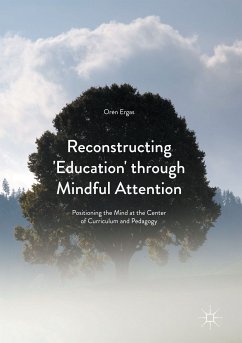
Education and Thinking in Continental Philosophy (eBook, PDF)
Thinking against the Current in Adorno, Arendt, Deleuze, Derrida and Rancière
Versandkostenfrei!
Sofort per Download lieferbar
72,95 €
inkl. MwSt.
Weitere Ausgaben:

PAYBACK Punkte
36 °P sammeln!
This book draws on five philosophers from the continental tradition - Theodor Adorno, Hannah Arendt, Gilles Deleuze, Jacques Derrida, and Jacques Rancière - in order to "think about thinking" and offer new and surprising answers to the question: How can we educate students to think creatively and critically? Despite their differences, all of these philosophers challenge the modern understanding of thinking, and offer original, radical perspectives on it. In very different ways, each rejects the modern approach to thinking, as well as the reduction of proper thought to rationality, situating t...
This book draws on five philosophers from the continental tradition - Theodor Adorno, Hannah Arendt, Gilles Deleuze, Jacques Derrida, and Jacques Rancière - in order to "think about thinking" and offer new and surprising answers to the question: How can we educate students to think creatively and critically? Despite their differences, all of these philosophers challenge the modern understanding of thinking, and offer original, radical perspectives on it. In very different ways, each rejects the modern approach to thinking, as well as the reduction of proper thought to rationality, situating thinking in sociohistorical reality and relating it to political action. Thinking, they argue, is not a natural, automatic activity, and the need to think has become all the more important as political reality seems to exhibit less thinking, or to even celebrate thoughtlessness. Bringing these continental conceptions of thinking to bear on the urgent need to educate young people to think againstthe current, this book makes a significant contribution to educational theory and political philosophy, one that is particularly relevant in today's anti-intellectual climate.
Dieser Download kann aus rechtlichen Gründen nur mit Rechnungsadresse in A, B, BG, CY, CZ, D, DK, EW, E, FIN, F, GR, HR, H, IRL, I, LT, L, LR, M, NL, PL, P, R, S, SLO, SK ausgeliefert werden.












